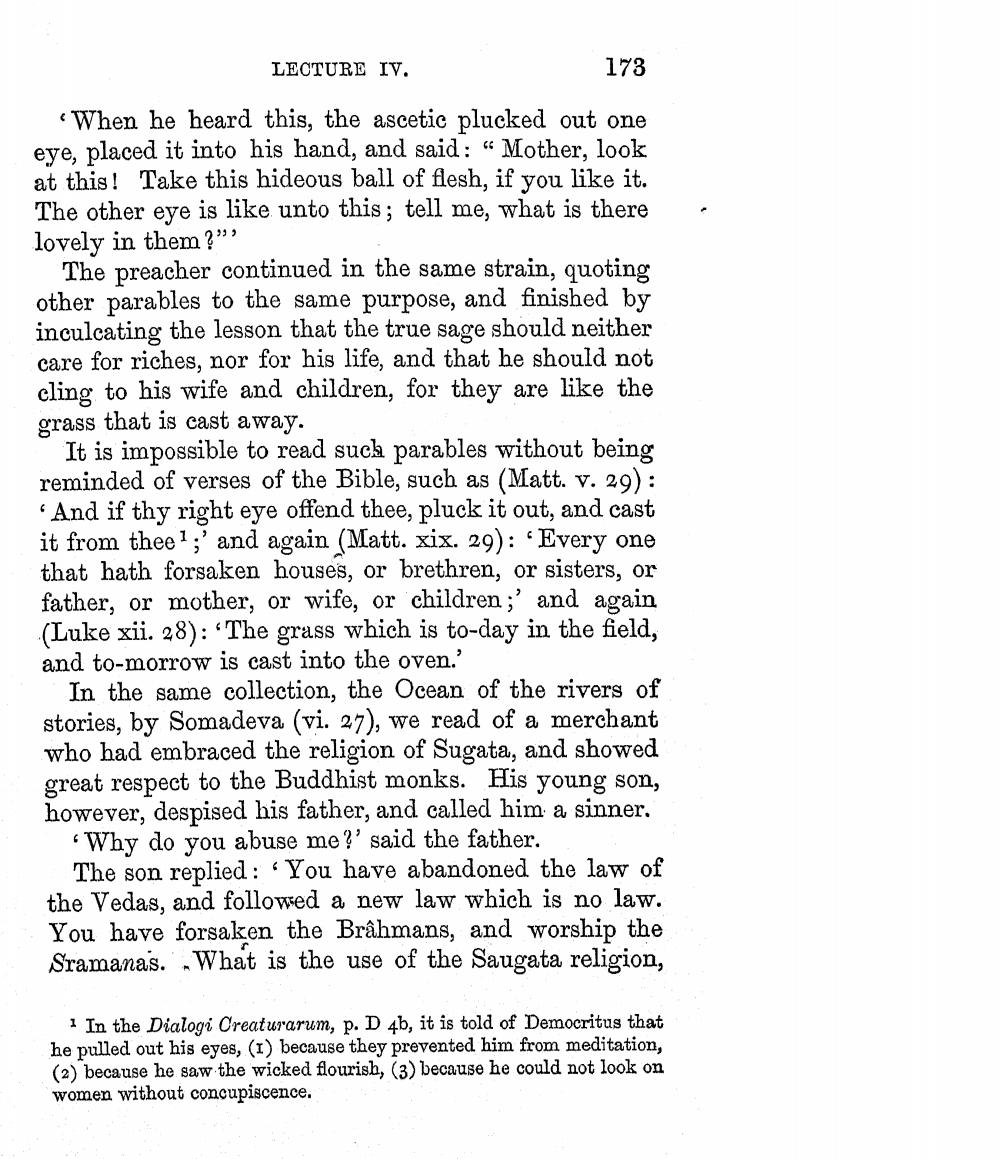________________
LECTURE IV.
173
When he heard this, the ascetic plucked out one eve, placed it into his hand, and said: “Mother, look at this! Take this hideous ball of flesh, if you like it. The other eye is like unto this; tell me, what is there lovely in them?”
The preacher continued in the same strain, quoting other parables to the same purpose, and finished by inculcating the lesson that the true sage should neither care for riches, nor for his life, and that he should not cling to his wife and children, for they are like the grass that is cast away.
It is impossible to read such parables without being reminded of verses of the Bible, such as (Matt. v. 29): "And if thy right eye offend thee, pluck it out, and cast it from thee?;' and again (Matt. xix. 29): "Every one that hath forsaken houses, or brethren, or sisters, or father, or mother, or wife, or children ;' and again (Luke xii. 28): The grass which is to-day in the field, and to-morrow is cast into the oven.'
In the same collection, the Ocean of the rivers of stories, by Somadeva (vi. 27), we read of a merchant who had embraced the religion of Sugata, and showed great respect to the Buddhist monks. His young son, however, despised his father, and called him a sinner.
Why do you abuse me?' said the father.
The son replied: “You have abandoned the law of the Vedas, and followed a new law which is no law. You have forsaken the Brâhmans, and worship the Sramanas. What is the use of the Saugata religion,
* In the Dialogi Creaturarum, p. D 4b, it is told of Democritus that he pulled out his eyes, (I) because they prevented him from meditation, (2) because he saw the wicked flourish, (3) because he could not look on women without concupiscence.




